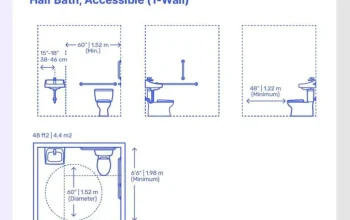Dripping faucets, clogged drains and water heater issues can quickly escalate into major headaches without prompt intervention. Be ahead of these issues by learning the signs and fixing techniques of common plumbing issues as soon as they arise.
At some point in your plumbing journey, you are bound to experience one or more common plumbing issues – whether that’s a dripping shower head or running toilet – but most can be resolved simply if you know what symptoms to look out for.
Clogged Drains
Clogs are one of the most prevalent plumbing issues and can occur in any room of your house. A blocked drain results when waste adheres to its sides and prevents water from flowing freely. Clogs also create foul odors within your home and may eventually lead to more serious problems in future.
To prevent drain clogs, never put anything that doesn’t belong down the drain. Grease, hair and soap scum can quickly build up in pipes and cause major blockages; to clear these out try using either a snake or chemical drain cleaner; just be aware of how you use either as they could potentially be dangerous if not used correctly – if all else fails call in a professional.
Leaky Faucets
Dripping faucets can quickly become an annoyance and drain water away, further driving up your utility costs. While they might seem minor at first, leaky faucets can eventually cause costly damage to pipes and fixtures over time.
Assuming your faucet hasn’t broken itself completely, its repair typically involves swapping out small parts like O-rings and washers – usually O-rings and washers are typically adequate – with new ones from an online source like Amazon or eBay. Before beginning work on it however, be sure to plug any drains with something such as cardboard to prevent old parts from falling down the drain! Doing this will prevent both old and new pieces from getting lost down there!
As you disassemble and reassemble Humpty Dumpty, take care in making sure all components fit snugly together – O-ring and washer should correspond exactly with each valve in which you install him/her.
Leaky Pipes
Leaks in your pipes can cause more than just inconvenience – they can lead to costly water damage repairs in your home and lead to unwanted growth and musty odors that require professional repair services to remediate. Therefore, it is crucial that any signs of leakage be addressed as soon as they arise in order to avoid more expensive repairs in the future.
Leakage occurs due to corrosion. Older Utah County homes commonly feature galvanized steel pipes which are susceptible to this issue and begin leaking at joints quickly, often necessitating replacing just part of the affected section of pipe for repair.
In the meantime, temporary solutions exist to stop leaks in your home. First, drain all the water by turning off your home’s main water valve, then place a container under the leak to catch and minimize further damage.
Frozen Pipes
Frozen pipes can be a serious hazard that leads to expensive water damage if left unaddressed in a timely manner. They occur when water freezes and expands, expanding even metal pipes enough for them to crack or burst. Luckily, there are ways you can help protect against frozen pipes occurring in your home.
One solution is to increase the temperature. If you are leaving home for some time, turning up the thermostat can help maintain an environment warm enough to protect your pipes from freezing over.
Hair dryers can also be used to heat the area around a frozen pipe; just be careful that you apply short bursts to avoid overheating it and risking rupture of the pipe.
Low Water Pressure
Low water pressure can be one of the most infuriating plumbing issues, making it hard to rinse dishes, take showers and complete laundry tasks. If the issue is confined to one fixture alone, try clearing away build-up from its aerator or showerhead by unscrewing and soaking it overnight in vinegar solution.
If the issue extends throughout your home, calling in a plumber could be beneficial in diagnosing the source, clearing clogs, adjusting or replacing pressure regulators and fixing leaks.
If your pipes are old and corroded, you may require replacement. Alternatively, installing a booster pump to increase water pressure might do the trick; your plumber can assist with both installations of this booster pump as well as selecting suitable pipes for your home.



